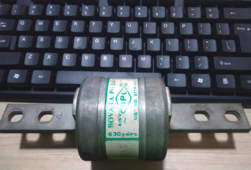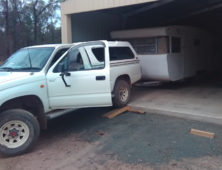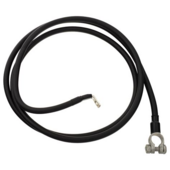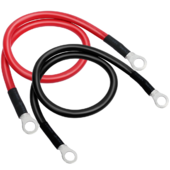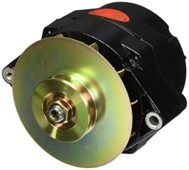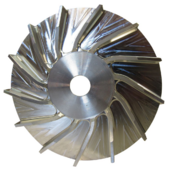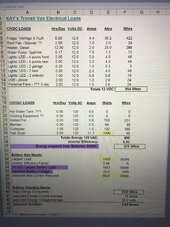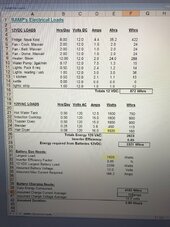steves_ambo
New Member
Hello,
I have a 2003 F450 ambulance that I'm converting into a camper. While designing and dreaming of how I want to do it, I started learning more about running a 48v house system vs 12v which I'm a little more familiar with. After Will's recent videos describing the benefits of going 48v, I think I'm convinced that's the way to go.
I understand the shore power and pv side well enough, but where I'm running into issues is charging from the car.
I did what any nerd would do and went to google and started searching for 48v alternators for a 6.0 powerstroke. I figured the truck already has two alternators, I could replace one with a 48v and I'd be set!
But, either my google foo is poor, or they don't really exist.
So, I guess I've got a couple of questions:
Does anyone know of a 48v alternator for a 6.0 powerstroke?
Is there some sort of device I can place in line between the 12v alternator and the dc/dc charger to "ramp" the voltage up to 48v?
Is there something I'm completely unaware of that is causing you to smack your forehead and utter I'm dumb under your breath?!
Thanks in advance!
Steve
I have a 2003 F450 ambulance that I'm converting into a camper. While designing and dreaming of how I want to do it, I started learning more about running a 48v house system vs 12v which I'm a little more familiar with. After Will's recent videos describing the benefits of going 48v, I think I'm convinced that's the way to go.
I understand the shore power and pv side well enough, but where I'm running into issues is charging from the car.
I did what any nerd would do and went to google and started searching for 48v alternators for a 6.0 powerstroke. I figured the truck already has two alternators, I could replace one with a 48v and I'd be set!
But, either my google foo is poor, or they don't really exist.
So, I guess I've got a couple of questions:
Does anyone know of a 48v alternator for a 6.0 powerstroke?
Is there some sort of device I can place in line between the 12v alternator and the dc/dc charger to "ramp" the voltage up to 48v?
Is there something I'm completely unaware of that is causing you to smack your forehead and utter I'm dumb under your breath?!
Thanks in advance!
Steve



